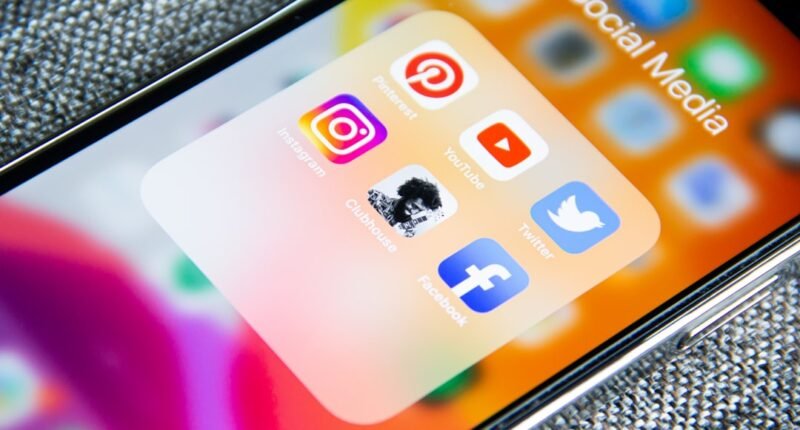In today’s digital age, traditional marketing methods are no longer as effective as they once were. Consumers are becoming increasingly skeptical of traditional advertising and are turning to influencers for recommendations and advice. This has led to the rise of influencer marketing, a strategy that leverages the power of social media influencers to promote products and services.
Influencer marketing is a form of marketing that focuses on using influential individuals to promote a brand or product. These influencers have built a large following on social media platforms such as Instagram, YouTube, and TikTok, and have the ability to sway the opinions and purchasing decisions of their followers. By partnering with influencers, brands can tap into their loyal fan base and reach new audiences in an authentic and engaging way.
Key Takeaways
- Influencer marketing is a type of marketing that involves partnering with individuals who have a large following on social media to promote a product or service.
- Influencers are important because they have built trust with their followers and can help increase brand awareness and drive sales.
- Companies should use influencer marketing because it can be more effective than traditional advertising and can reach a targeted audience.
- Using an influencer email finder can help companies identify the right influencers to work with and reach out to them directly.
- When approaching influencers, it’s important to personalize the message, be transparent about the partnership, and offer something of value to the influencer.
Defining Influencer Marketing: What is it?
Influencer marketing is a form of marketing that involves collaborating with influential individuals to promote a brand or product. Unlike traditional marketing methods, which rely on paid advertisements and celebrity endorsements, influencer marketing focuses on building relationships with influencers who have a genuine connection with their audience.
There are various types of influencers, ranging from macro-influencers with millions of followers to micro-influencers with smaller but highly engaged audiences. Macro-influencers typically have a larger reach and can help brands increase brand awareness, while micro-influencers often have a more niche following and can drive higher levels of engagement and conversions.
The impact of influencers on consumer behavior is significant. Studies have shown that consumers trust recommendations from influencers more than traditional advertisements. This is because influencers have built a relationship with their followers based on trust and authenticity. When an influencer recommends a product or service, their followers are more likely to trust their opinion and make a purchase.
The Role of Influencers in Marketing: Why They Matter
In today’s marketing landscape, influencers play a crucial role in helping brands connect with their target audience. Influencers have the ability to reach a large and engaged audience, making them an effective channel for brands to promote their products or services.
One of the key reasons why influencers are important is the trust and credibility they have with their followers. Unlike traditional advertisements, which are often seen as biased and self-promotional, influencers are seen as relatable and trustworthy. Their followers view them as friends or peers, and are more likely to trust their recommendations.
This trust and credibility translate to brand loyalty. When an influencer promotes a product or service, their followers are more likely to try it out and become loyal customers. This is because they trust the influencer’s judgment and believe that the product or service will meet their needs.
The Benefits of Influencer Marketing: Why Companies Should Use It
There are numerous benefits to incorporating influencer marketing into a company’s marketing strategy. One of the main benefits is increased brand awareness. By partnering with influencers, brands can reach a wider audience and increase their visibility. Influencers have a dedicated following who actively engage with their content, making them an effective channel for spreading brand awareness.
In addition to brand awareness, influencer marketing also drives higher levels of engagement. Influencers have built a loyal fan base who actively engage with their content through likes, comments, and shares. When an influencer promotes a brand or product, their followers are more likely to engage with the content and share it with their own network.
Furthermore, influencer marketing can also lead to increased sales. Studies have shown that consumers are more likely to make a purchase based on an influencer’s recommendation. When an influencer promotes a product or service, their followers trust their opinion and are more likely to make a purchase.
There have been numerous successful influencer marketing campaigns that have generated significant results for brands. For example, fashion brand Revolve has built its entire marketing strategy around influencer partnerships. By collaborating with influencers and hosting influencer trips and events, Revolve has been able to increase brand awareness and drive sales.
How to Identify Influencers: The Importance of Influencer Email Finder
Finding the right influencers for your brand is crucial for the success of your influencer marketing campaigns. It’s important to identify influencers who align with your brand values and have a genuine connection with their audience.
One effective way to identify potential influencers is by using an influencer email finder tool. These tools allow you to search for influencers based on specific criteria such as location, niche, and follower count. They provide you with a list of potential influencers who meet your criteria, making it easier to find the right influencers for your brand.
In addition to using an influencer email finder tool, it’s also important to research potential influencers before reaching out to them. Look at their content, engagement rates, and audience demographics to ensure that they are a good fit for your brand.
Email Influencers: The Power of Direct Communication

Once you have identified potential influencers, it’s important to reach out to them directly via email. Email is a powerful tool for building relationships with influencers and establishing a partnership.
When reaching out to influencers via email, it’s important to be clear and concise in your communication. Introduce yourself and your brand, explain why you are reaching out to them, and outline the benefits of partnering with your brand. Be sure to personalize your email and show genuine interest in their content.
How to Approach Influencers: Best Practices for Email Outreach
When approaching influencers, it’s important to follow best practices for email outreach. Personalization is key – make sure to address the influencer by their name and reference specific content that you enjoyed or found valuable.
Building a relationship with influencers is also crucial. Take the time to engage with their content before reaching out, whether it’s by liking their posts or leaving thoughtful comments. This shows that you are genuinely interested in their content and increases the likelihood of a positive response.
Transparency and authenticity are also important in influencer partnerships. Be clear about your expectations and the terms of the partnership, and ensure that the influencer discloses any sponsored content to their followers. This builds trust with both the influencer and their audience.
The Dos and Don’ts of Influencer Marketing: Avoiding Common Mistakes
Influencer marketing can be highly effective, but it’s important to avoid common mistakes that can undermine the success of your campaigns. One common mistake is not disclosing sponsored content. It’s important to be transparent with your audience and clearly label any sponsored content to maintain trust and credibility.
Another mistake to avoid is partnering with influencers who don’t align with your brand values. It’s important to do your research and ensure that the influencer’s content and audience align with your target market.
Furthermore, it’s important to set clear goals and metrics for your influencer marketing campaigns. Without clear goals, it can be difficult to measure the success of your campaigns and make data-driven decisions.
Measuring the Success of Influencer Marketing: Metrics to Track
Tracking metrics is crucial for measuring the success of your influencer marketing campaigns. There are several key metrics that you should track, including engagement rates, reach, and ROI.
Engagement rates measure how actively engaged an influencer’s audience is with their content. This includes likes, comments, shares, and saves. A high engagement rate indicates that the influencer’s audience is highly engaged and receptive to their content.
Reach measures the number of people who have been exposed to an influencer’s content. This can be measured through impressions or reach metrics provided by social media platforms.
ROI measures the return on investment of your influencer marketing campaigns. This can be calculated by comparing the cost of the campaign to the revenue generated from the campaign.
The Future of Influencer Marketing: Trends and Predictions
Influencer marketing is constantly evolving, and there are several emerging trends that are shaping the future of influencer marketing. One of these trends is the rise of micro-influencers. Micro-influencers have smaller but highly engaged audiences, making them an effective channel for driving conversions and building brand loyalty.
Another trend is the increasing popularity of video content. Platforms such as TikTok and YouTube have become popular channels for influencers to create and share video content. Video content is highly engaging and allows influencers to showcase products or services in a more dynamic and interactive way.
In conclusion, influencer marketing is a powerful strategy that can help brands reach new audiences, increase brand awareness, and drive sales. By partnering with influencers who have a genuine connection with their audience, brands can tap into their loyal fan base and build trust and credibility. With the right approach and measurement strategies, influencer marketing can be a highly effective tool for companies looking to grow their brand in the digital age.
If you’re looking to dive deeper into the world of influencer marketing, you won’t want to miss this informative article on “The Power of Influencer Email Marketing.” This insightful piece, found at https://influencers.email/hello-world/, explores how email marketing can be a game-changer when it comes to leveraging the influence of social media personalities. Discover the strategies and tactics that can help you effectively engage with your target audience through email campaigns and maximize your influencer marketing efforts. Don’t miss out on this valuable resource!
FAQs
What is influencer marketing?
Influencer marketing is a type of marketing strategy that involves partnering with individuals who have a significant following on social media platforms to promote a brand or product.
What is the purpose of influencer marketing?
The purpose of influencer marketing is to leverage the influence of individuals with a large following on social media to promote a brand or product to their audience.
How does influencer marketing work?
Influencer marketing works by partnering with individuals who have a significant following on social media platforms to promote a brand or product to their audience. This can be done through sponsored posts, product reviews, or other types of content.
What are the benefits of influencer marketing?
The benefits of influencer marketing include increased brand awareness, improved brand credibility, and the ability to reach a targeted audience.
What are the different types of influencers?
There are several types of influencers, including celebrity influencers, macro influencers, micro influencers, and nano influencers. Celebrity influencers have a large following and are typically well-known public figures, while micro and nano influencers have smaller followings but are more niche-focused.
How do you measure the success of influencer marketing?
The success of influencer marketing can be measured through metrics such as engagement rates, reach, and conversions. These metrics can help determine the effectiveness of a campaign and whether it has achieved its goals.






